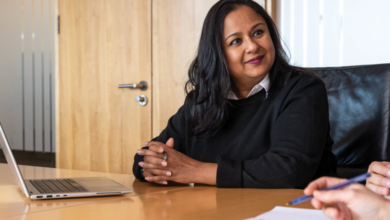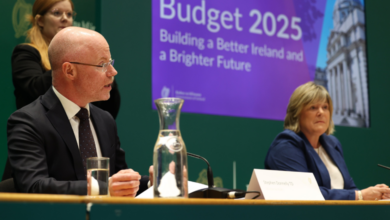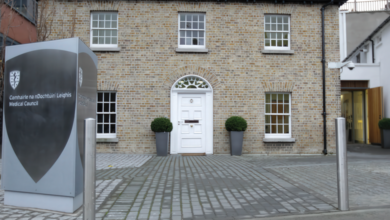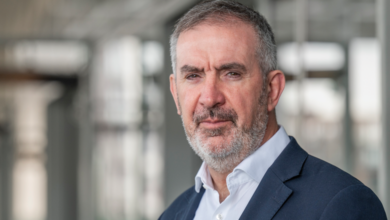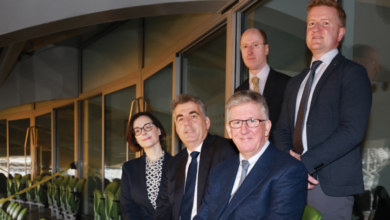Explaining the health overspend


Overspending on the health budget is nothing new, but why is this budget particularly prone? UCC economics lecturer Brian Turner writes.
It was recently reported that the Minister for Finance is to establish a Budget Oversight Group to try to ensure that the health budget does not face an overrun next year. This comes amid expectations of an overrun in the order of €700 million for 2018.
The first thing to note is that, unlike some other areas of government expenditure, health is very much a demand-led service. One could not imagine a scenario where someone presents at a hospital, for example, only to be told that the budget has run out and they can’t be treated. Estimates of demand for healthcare are, by their nature, prone to variation.
Another point of relevance here is that the Irish health system has a large amount of pent-up demand, as evidenced by, for example, long waiting lists for hospital treatment. Therefore, even if more healthcare services are made available, they will likely be fully utilised – the ‘if you build it, they will come’ scenario.
These long waiting times for hospital care mean that patients are, in many cases, being treated at a later stage of their illness, which may require more intensive (and costlier) treatment. Evidence also suggests that the charges for visiting GPs for those without Medical Cards or GP Visit Cards lead many people to put off seeking care on cost grounds, and in some cases these people may only present at a later stage of illness. Therefore, the Irish system is not getting the same kind of value for money as it could if people were treated at an earlier stage.
Other contributory factors to the overspend in health include an increase in take-up of the cross-border healthcare directive, under which Irish citizens have a right to be treated in another EU Member State; unanticipated decisions by Ministers to come to agreements to fund high-cost drugs that are not recommended for reimbursement by the National Centre for Pharmacoeconomics; and an under-shoot of private income in public hospitals.
“The Irish health system undoubtedly requires reform, but it also requires significant investment. These need to happen in tandem – trying to achieve one without the other simply won’t work.”
The last of these stems from the change to the bed designation system in public hospitals from 1 January 2014. Prior to that date, private health insurers were only charged if their members were accommodated in private beds in public hospitals, but not if their members were accommodated in public or non-designated beds (such as in Intensive Care Units). Since the change in designation, insurers have been charged for accommodation irrespective of the type of bed their members are in.
Initially, this led to an increase in private income received by public hospitals. However, more recently, insurers have been encouraging their members not to sign forms indicating that they wish to be treated privately unless they receive some benefit from being insured. This has led to private income in public hospitals being lower than forecast in a public hospital sector that is an area of particular concern in relation to budget overruns.
Another issue to bear in mind is that, while Ireland’s health spending has recently compared favourably in an international context, the opposite was true for decades before that, notwithstanding our relatively young population. This has contributed to the pent-up demand mentioned above. Furthermore, while in recent years Ministers have lauded record health budgets, this does not take into account population growth and medical inflation.
These factors also mean that our health budget will continue to increase, as our population grows and ages (demand for medical services tends to increase with age). Medical inflation is also an ongoing feature, with constant improvements in medical technologies.
The Sláintecare report, released in 2017, estimates that medical inflation and demographic pressures will add 3 per cent per annum to health spending. In the context of a health budget of roughly €15 billion, this would equate to around €450 million – this would be the extra amount needed before any improvements in services are implemented.
On top of this, the 10-year plan envisages additional spending each year, to the point where spending by year 10 would be €2.8 billion per annum higher than at the start of the plan. If the starting point were again to be taken at roughly €15 billion, this additional expenditure plus the increases for medical inflation and demographics would mean that, by the end of the plan’s duration, health spending would be around €23 billion. However, it should be noted that the report estimates that private spending on health would be nearly €1.5 billion per annum lower as a result of reduced out-of-pocket payments and fewer people purchasing private health insurance.
These figures do not include capital expenditure, which is also expected to be significant over the coming decade. The National Development Plan allocated €10.9 billion in capital funding to health from 2018-2027, including for the provision of 2,600 additional acute hospital beds, 4,500 long-term and short-term residential beds in community nursing homes, and additional primary care centres and community diagnostic facilities.
There remains some uncertainty around future health spending. One key proposal of the Sláintecare report is the removal of private practice from public hospitals, which is estimated will cost almost €650 million per annum when fully implemented. However, this will require a renegotiation of the consultant contract, as the majority of public hospital consultants currently have on-site private practice entitlements. Past experience suggests that negotiations on these will neither be quick nor easy. A new GP contract is also required in the context of plans to roll out free-at-the-point-of-use GP care to all. The levels of remuneration agreed in these contract negotiations will have implications for the health budget for years to come.
Further uncertainty surrounds the ability to recruit and retain staff, particularly as we are now competing in a global market against other countries with skills shortages in their health systems. In this context, it should be borne in mind that the Health Service Capacity Review envisages a 48 per cent increase in the primary care workforce by 2031 (if the Sláintecare reforms are implemented), which would include the recruitment of an extra 1,030 GPs, 1,200 practice nurses and 1,100 public health nurses along with further increases in other categories (Whole-Time Equivalent figures). In order to attract these people into the Irish health service, they will need to be appropriately reimbursed.
The Irish health system undoubtedly requires reform, but it also requires significant investment. These need to happen in tandem – trying to achieve one without the other simply won’t work. If the Sláintecare vision is to become a reality, then it will require substantial increases in the health budget for years to come. If these are not forthcoming then it will become increasingly difficult to achieve its goals, and we are likely to see a continuation of overruns for some time to come.

